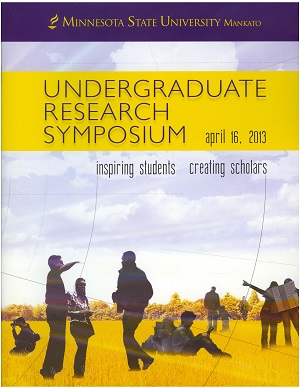Event Title
The Relationship Between State Government Political Ideology and Deficit
Location
CSU 202
Start Date
16-4-2013 3:25 PM
End Date
16-4-2013 4:25 PM
Student's Major
Economics
Student's College
Social and Behavioral Sciences
Mentor's Name
Ihsuan Li
Mentor's Department
Economics
Mentor's College
Social and Behavioral Sciences
Description
The primary aim of this research seeks to discover whether the political ideology of our elected leaders will influence government spending and deficit. This study will also contribute to the extensive literature and research on the effects of political orientation and ideology. Particularly by analyzing a larger and more recent data set across the 50 states while focusing thoroughly on revenue and spending by state.
State Government data from 2000-2010 was used to specify revenue and spending models. These models identify many important economic and political determinants. Elected officials are now under more scrutiny than ever to perform well, specifically dealing with the perpetual issues of spending and deficit. United States citizens have a constitutional right to elect the official they believe will govern the best. In most cases, voting isn’t directed toward personal aspects but instead towards the candidate’s political ideology. People vote differently because they subscribe to different political ideologies, depending on their norms and assumptions about the functioning of society (Bjornskov, 2004).
The Relationship Between State Government Political Ideology and Deficit
CSU 202
The primary aim of this research seeks to discover whether the political ideology of our elected leaders will influence government spending and deficit. This study will also contribute to the extensive literature and research on the effects of political orientation and ideology. Particularly by analyzing a larger and more recent data set across the 50 states while focusing thoroughly on revenue and spending by state.
State Government data from 2000-2010 was used to specify revenue and spending models. These models identify many important economic and political determinants. Elected officials are now under more scrutiny than ever to perform well, specifically dealing with the perpetual issues of spending and deficit. United States citizens have a constitutional right to elect the official they believe will govern the best. In most cases, voting isn’t directed toward personal aspects but instead towards the candidate’s political ideology. People vote differently because they subscribe to different political ideologies, depending on their norms and assumptions about the functioning of society (Bjornskov, 2004).
Recommended Citation
Gruidl, Curtis. "The Relationship Between State Government Political Ideology and Deficit." Undergraduate Research Symposium, Mankato, MN, April 16, 2013.
https://cornerstone.lib.mnsu.edu/urs/2013/oral-session-15/3



